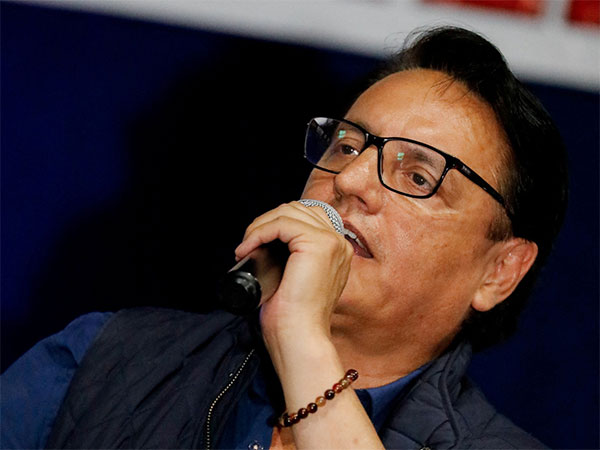
Quito: The six suspects arrested in connection with the assassination of a presidential candidate in Ecuador are Colombian nationals, Ecuador’s interior minister, Juan Zapata, said on Thursday.
This marked another twist in the killing that has rocked a nation consumed by violence fueled by drug trafficking, the New York Times reported.
The revelation that the suspects are Colombian is reminiscent of the assassination of Haiti’s president, Jovenel Moïse, in July 2021, in a plot that ensnared at least 18 Colombians who remain jailed in Haiti awaiting trial. The Colombians are accused of assisting in the operation to kill the Haitian leader in his home.
The candidate, Fernando Villavicencio, a former journalist who had been outspoken about the link between organized crime and government officials, was gunned down outside a high school in the capital, Quito, after speaking to young supporters. The attack came just days before voting begins in an election that has been dominated by concerns over drug-related violence, the New York Times reported.
In the scuffle that followed, one suspect was killed and nine other people were shot, officials said.
Villavicencio, 59, was polling near the middle of an eight-person race. He was among the most vocal candidates on the issue of crime and state corruption.
This comes less than a month after the mayor of Manta, a port city, was fatally shot during a public appearance, the New York Times reported.
“Outraged and shocked by the assassination,” President Guillermo Lasso wrote on Twitter late Wednesday, blaming the death on “organized crime.”
Lasso said the attackers had thrown a grenade into the street as a distraction as they tried to flee, but that it failed to explode. The national prosecutor’s office said on Twitter that a suspect had been shot and apprehended amid crossfire with security forces, and had died shortly afterwards, the New York Times reported.
The office later said the authorities had carried out raids and detained six people in connection with the assassination.
The nine other people shot in Wednesday night’s attack included two police officers and a candidate for a National Assembly seat, according to the prosecutor’s office. There was no immediate information about the condition of the nine people; it was unclear late Wednesday night whether any of them had died.
Ecuador, on South America’s western edge, witnessed an extraordinary transformation between 2005 and 2015 as millions of people rose out of poverty, riding the wave of an oil boom whose profits were poured into education, health care and other social programs.
But more recently, the country has been dominated by an increasingly powerful narco-trafficking industry. Foreign drug mafias have joined forces with local prison and street gangs, unleashing a wave of violence, unlike anything in the country’s recent history. Homicide rates are at record levels, the New York Times reported.
In a televised statement early Thursday, Lasso declared a 60-day, nationwide state of emergency, a measure that involves the restriction of some civil liberties, and he said security forces would be deployed across the country. Such emergency declarations, meant for extraordinary circumstances, have become more common in recent years, but have done little to curtail Ecuador’s soaring violence.
Lasso stressed, however, that the elections would proceed as scheduled. “This was a political crime, terrorism,” he said.
“And there is no doubt that this assassination is an attempt to sabotage the electoral process. It is no coincidence this happened days before the first round of voting," he added.